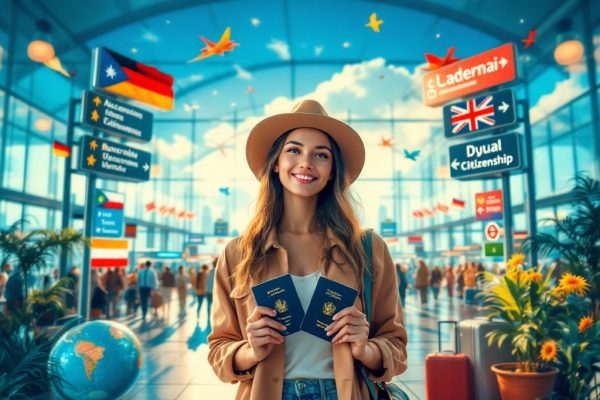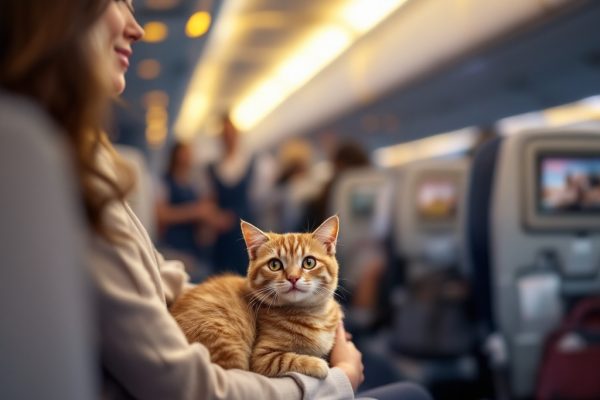Planning a Trip to Spain: Learn the Most Useful Phrases in Spanish
Planning a trip to Spain? Unlock a richer travel experience by learning key Spanish phrases. From confidently ordering food (“¿Cuánto cuesta?”) to easily asking for directions (“¿Dónde está…?”), basic Spanish empowers you to connect with locals and navigate daily life with ease. Discover essential phrases for transportation, dining, emergencies, and more, transforming your Spanish adventure from ordinary to extraordinary. Start learning today and make your trip unforgettable!
Important information

- Learning basic Spanish phrases enhances your travel experience in Spain by making it easier to connect with locals, ask for directions, order food, and show respect.
- Key phrases like “¿Dónde está…?” (Where is…?), “¿Cuánto cuesta?” (How much does it cost?), “Por favor” (Please), and “Gracias” (Thank you) are essential for navigating daily life.
- For emergencies, use “Necesito ayuda” (I need help), “Llama a la policía” (Call the police), or “¿Dónde está el hospital?” (Where is the hospital?). For health concerns, say “Tengo una alergia” (I have an allergy) and be specific (e.g., “Tengo una alergia a los cacahuetes” – I have a peanut allergy).
- In restaurants, use phrases like “Una mesa para dos/tres/cuatro” (A table for two/three/four), “Yo quiero” (I want), “¿La cuenta, por favor?” (The check, please), and “¿Qué me recomienda?” (What do you recommend?).
- When shopping, use “¿Cuánto cuesta?” (How much does this cost?), “¿Puedo probarlo?” (Can I try it on?), and “Estoy buscando…” (I’m looking for…). For currency exchange, ask “¿Dónde puedo cambiar dinero?” (Where can I exchange money?).
Planning a Trip to Spain: Learn the Most Useful Phrases in Spanish
Planning a trip to Spain? Learning some basic Spanish will greatly enhance your travel experience. Connecting with locals becomes easier, allowing you to confidently ask for directions or order food. Even simple phrases demonstrate respect and foster positive interactions.
Benefits of learning basic Spanish:
- easier connection with locals,
- confidently asking for directions,
- ordering food with ease,
- demonstrating respect,
- fostering positive interactions.
Useful Spanish phrases:
- “¿Dónde está…?” (Where is…?),
- “¿Cuánto cuesta?” (How much does it cost?),
- “Por favor” (Please),
- “Gracias” (Thank you).
These key phrases prove incredibly useful for navigating daily life. They’ll help you understand directions, simplify ordering food, and make asking for assistance easier. While practical, this also enriches your cultural immersion, making your trip more enjoyable and memorable.
Why Learning Basic Spanish Phrases is Essential
Knowing basic Spanish phrases is invaluable for politely interacting with locals and demonstrating respect for their culture. It’s also incredibly useful in everyday situations, like ordering food or asking for directions. Being understood significantly enhances your travel experience, making it smoother and more enjoyable.
Boosting Confidence with Spanish for Travelers
Learning a bit of Spanish can significantly improve your travels. It boosts your confidence and helps you connect with locals, whether you’re asking for directions or ordering food. This interaction creates a more immersive and enjoyable travel experience. While fluency isn’t required, knowing a few phrases can enhance your trip and show respect for the local culture, which is often appreciated. It’s a small effort with a big reward.
Enhancing Your Travel Experience with Spanish Phrases
Learning a few basic Spanish phrases can greatly improve your travel experience in Spain. It helps you communicate with locals, making everyday tasks like ordering food or asking for directions much easier. Navigating public transport becomes simpler, and you’ll also show respect for Spanish culture, leading to more authentic and enriching experiences. This deeper connection with the people and place truly enhances your trip.
Basic Spanish Phrases for Everyday Interactions
Spice up your Spanish trip by learning some basic phrases. Start with “Hola” (hello) and “¿Cómo estás?” (how are you?). Being polite is key, so use “Por favor” (please) and “Gracias” (thank you) frequently. Lost? Ask “¿Dónde está…?” (where is…?). Shopping? “¿Cuánto cuesta?” (how much does this cost?) is a must-know. If you’re stuck, try “No hablo español” (I don’t speak Spanish) or “¿Habla inglés?” (do you speak English?). Even a few Spanish phrases can enrich your experience by showing respect and demonstrating a willingness to engage with the local culture, making communication smoother and more enjoyable.
Common Greetings and Polite Expressions
Mastering Spanish greetings is essential. The common greeting “¡Hola!” translates to “Hello,” while “¿Qué tal?” allows you to inquire “How’s it going?” For specific times of day, use:
- ¡Buenos días! (Good morning),
- ¡Buenas tardes! (Good afternoon/evening),
- ¡Buenas noches! (Good night).
Politeness is also crucial in Spanish interactions. Remember these essential phrases:
- Por favor (Please),
- Gracias (Thank you),
- De nada (You’re welcome).
These phrases not only facilitate communication but also demonstrate respect.
Essential Questions and Responses
Knowing a few key Spanish phrases can be incredibly helpful during your travels. For example, “Do you speak English?” can help bridge communication gaps.
For shoppers, “How much is it?” is essential for navigating markets and stores.
Simple words like “Yes” and “No” are fundamental building blocks for basic communication.
“Where is the bathroom?” is always a practical question to know.
Keeping track of time is important, so knowing “What time is it?” is helpful.
Politeness is key, so “Thank you” and “Please” are essential for showing good manners.
A friendly “How are you?” can be a great conversation starter and help you connect with locals.
“Where are you from?” is a common question that can lead to interesting cultural exchanges.
Spanish Phrases for Transportation and Directions
Navigating Spain’s public transport is easier than you think. To locate the bus or train station, simply ask, “¿Dónde está la estación de autobuses/tren?”. If you need a specific route, ask, “¿Qué autobús/tren va a…?” (Which bus/train goes to…?) followed by your destination. Buying a ticket is easy; just say, “¿Un billete para…, por favor?” (A ticket to…, please) and remember to ask “¿Cuánto cuesta?” (How much does it cost?).
Finding Your Way
Getting lost in Spain is no cause for concern. Use “¿Dónde está…?” (Where is…?) to locate any place. Alternatively, “¿Cómo llego a…?” (How do I get to…?) will provide directions. “Estoy perdido/a” (I’m lost) is always a helpful phrase, but knowing some basic directional phrases can be invaluable.
Key Directional Phrases
- “A la derecha” (to the right),
- “a la izquierda” (to the left),
- “recto” (straight ahead).
Navigating Public Transport in Spain
Traveling around Spain is easy with its diverse public transport system. Locate stations by asking: “¿Dónde está la estación de autobuses?” for the bus station, “¿Dónde está la estación de tren?” for the train station, or “¿Dónde está la estación de metro?” for the metro. If you get lost, simply say “Estoy perdido/a.” For directions to a specific place, ask “¿Cómo llego a…?” (How do I get to…?).
Asking for Directions and Getting Around
Mastering a few key phrases can significantly improve your navigation skills.
Start with “How do I get to…?“.
Remember “to the right,” “to the left,” and “go straight“.
Should you get lost, simply state “I am lost“.
Use “Where is…?” to locate specific places, ensuring smoother travels.
Essential Spanish Phrases for Hotel Arrangements
Booking a room, start with “Quisiera hacer una reservación”. If you’ve already booked, use “Tengo una reservación”.
Upon arrival, ask about check-in/out times: “¿A qué hora es el check-in/check-out?”.
To find a vacant room, inquire: “¿Hay habitaciones disponibles?”. Don’t forget to ask about the cost: “¿Cuánto cuesta la habitación por noche?”.
For assistance with any issues, use “¿Podría ayudarme con…?”. For example, report room problems with “Hay un problema en mi habitación”.
For other needs, say “Necesito…”. For simple requests, like extra towels, use “¿Puede traerme…?”.
Making Reservations and Checking In
Planning your trip and booking a hotel is easy. For restaurant reservations, use the phrase “Una mesa para dos/tres/cuatro” (A table for two/three/four). When you arrive at the hotel, simply say “Tengo una reserva” (I have a reservation) along with your name and confirmation number.
Addressing Issues and Requests
If you’re having trouble, ask “¿Puede ayudarme?” (Can you help me?).
For polite requests, use “¿Podría…?” (Could you…?).
To explain an issue, say “Tengo un problema.” (I have a problem).
For example, “La llave no funciona” means “The key doesn’t work,”.
“No hay agua caliente” translates to “There’s no hot water.”.
If you need another room, inquire “¿Hay otra habitación disponible?” (Is there another room available?).
Using Spanish Phrases in Dining and Restaurants
To request a table, say “A table for two, please”.
When ready to order, inform your server by saying “I am ready to order”.
To inquire about the daily special, ask “What is the dish of the day?”.
When you’ve finished your meal, request the bill by saying “The bill, please”.
For recommendations, ask your server “What do you recommend?”.
You can also begin your order by saying “I would like to order…”.
If you need the menu, simply ask “Can you bring me the menu, please?”.
Restaurant Phrases for Ordering and Paying
To order, simply say “Yo quiero” (I want).
Need the check? Politely ask, “¿La cuenta, por favor?” (The check, please).
Unsure what to order? Try “¿Qué me recomienda?” (What do you recommend?).
When ready, let your server know, “Estoy listo para ordenar” (I’m ready to order).
Communicating Dietary Needs and Preferences
Communicate your dietary needs clearly and concisely. For example:
- For allergies: “I am allergic to shellfish,” or “I am allergic to peanuts.”
- For dietary restrictions: “I am vegetarian,” or “I am vegan.”
- For dislikes: “I don’t eat red meat,” or “I don’t eat pork.”
- For preferences: “I prefer gluten-free food,” or “I prefer low-sodium options.”
Shopping and Currency Exchange in Spanish
Planning a shopping spree in Spain? Learn these key phrases. Inquire about prices with “¿Cuánto cuesta?”. Need a fitting room? Ask “¿Puedo probarlo?”. Looking for something specific? Use “Estoy buscando…”.
Exchanging Currency
Locate a bureau de change by asking “¿Dónde puedo cambiar dinero?”. Understand the exchange rate with “¿Cuál es el tipo de cambio?”.
Paying with Card
Let shops know you’ll use a credit card by saying “Acepto tarjeta de crédito”.
Useful Phrases for Shopping Experiences
Excuse me, what’s the price of this?
Would it be possible to try it on?
Do you perhaps have this in another size or color?
I have something particular in mind.
What would you suggest?
Do you accept credit cards?
It’s a bit beyond my budget.
Any chance of a discount?
I’ll take it.
Could I have a bag, please?
Handling Currency Exchange and Prices
Traveling to Spain? Here’s a quick guide to handling money:
Currency
The official currency is the euro (€).
Asking About Prices
- “¿Cuánto cuesta?” (How much does this cost?),
- “¿Cuál es el precio?” (What is the price?).
Exchanging Currency
Ask “¿Dónde puedo cambiar dinero?” (Where can I exchange money?). Banks and “casas de cambio” (exchange bureaus) offer currency exchange services. Look out for “comisión” (commission) signs and choose options with lower rates.
Making Payments
- To pay with card, ask “¿Puedo pagar con tarjeta?”.
- To pay with cash, say “Voy a pagar en efectivo”.
Handling Emergencies and Important Questions in Spanish
In emergencies, knowing how to ask for help is critical. “Necesito ayuda” (I need help). If you need the police, “Llama a la policía” (Call the police). “Dónde está el hospital?” (Where is the hospital?).
- “Necesito ayuda” (I need help).
- “Llama a la policía” (Call the police).
- “¿Dónde está el hospital?” (Where is the hospital?).
To locate the police station, ask “¿Dónde está la estación de policía?” (Where is the police station?). For general assistance, use “¿Me puede ayudar?” (Can you help me?).
- “¿Dónde está la estación de policía?” (Where is the police station?).
- “¿Me puede ayudar?” (Can you help me?).
Communicating health concerns is also important. “Tengo una alergia” (I have an allergy). Be precise. For instance, “Tengo una alergia a los cacahuetes” (I have a peanut allergy) clarifies your specific allergy.
- “Tengo una alergia” (I have an allergy).
- “Tengo una alergia a los cacahuetes” (I have a peanut allergy).
- “Estoy enfermo/enferma” (I am sick).
- “Necesito un médico” (I need a doctor).
Emergency Phrases and Seeking Help
I need immediate police assistance. I also need directions to the nearest hospital.
Communicating Health Concerns and Allergies
If you have any allergies, inform your server. Saying “Tengo alergia a…” (I am allergic to…) will ensure they understand your dietary restrictions.
In case of a serious medical emergency, dial 112 for immediate assistance.
For minor ailments, a local “farmacia” (pharmacy) can offer over-the-counter solutions.
Should you require a doctor’s consultation, visit a “centro de salud” (health center).
Pharmacies can also often recommend helpful remedies.
Concluding Your Trip with Spanish Phrases
As your trip concludes, bidding farewell politely is essential. While “Adiós” signifies a simple goodbye, “Hasta luego” implies a future reunion. Express gratitude with “Gracias,” or emphasize it with “Muchas gracias.” For a truly heartfelt expression of thanks, add “por todo” (for everything), forming the deeply appreciative phrase “Muchas gracias por todo.” These simple expressions ensure a gracious departure.
Farewell Phrases and Expressing Gratitude
Express your gratitude with “Muchas gracias” (Thank you very much) or, for added emphasis, “Muchísimas gracias” (Thank you so much). If someone thanks you, reply with “De nada” (You’re welcome). When departing, say “Adiós” (Goodbye) or “Hasta luego” (See you later). You could also say “Que tenga un buen día” (Have a good day) or, if they are traveling, “Que tenga un buen viaje” (Have a good trip).









